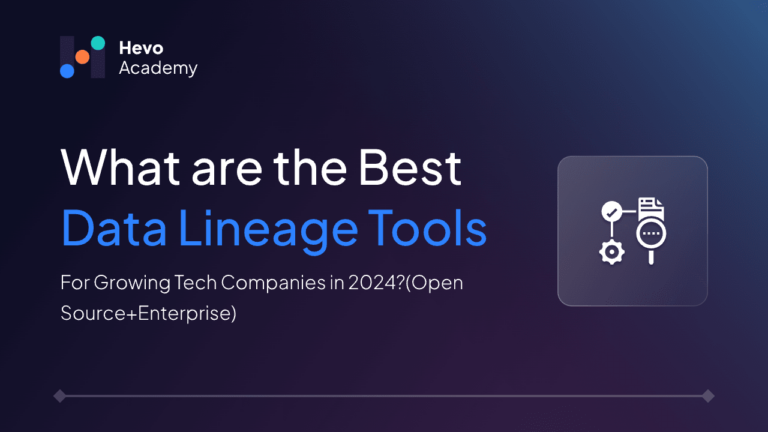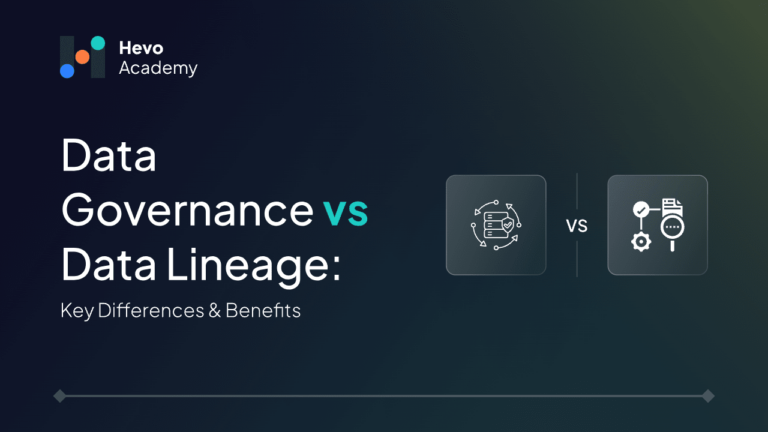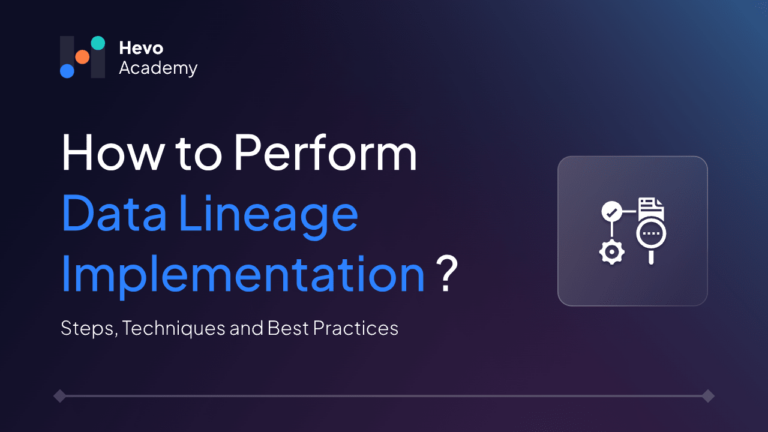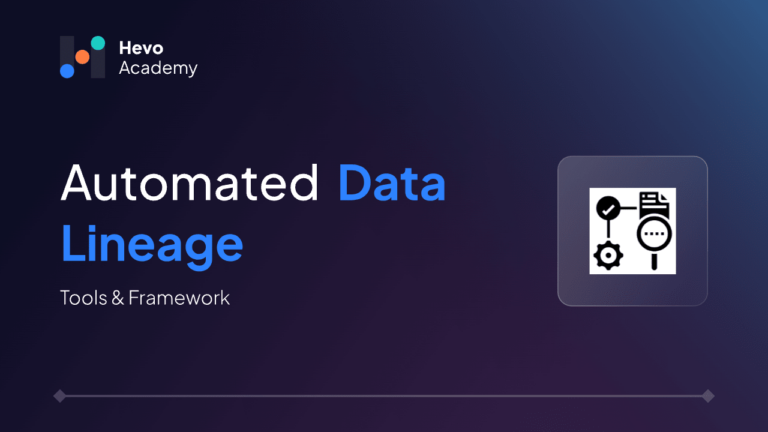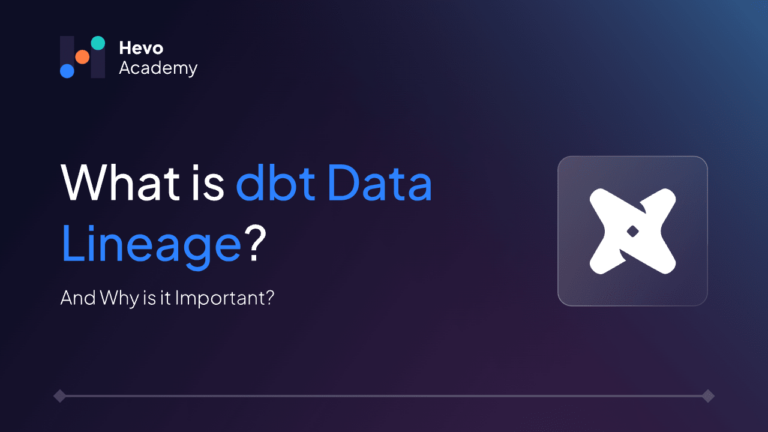With the rise in the volume of data in the modern technological world, Understanding the journey of data—its origin, how data moves, and its destination—is essential for any organization. This concept-often known as data lineage,is a critical component of data management. It ensures data transparency, improvement in data quality, and regulatory compliance.
Table of Contents
Data lineage tools can be life savers when dealing with compliance issues, optimizing data operations, or even gaining a deep understanding of complex data flows. The general idea behind such tools is to visualize data movement so that one can monitor, audit, and ultimately improve one’s data ecosystem more effectively.
By following this blog, you will learn about the top 10 data lineage tools in 2024, from open-source platforms to enterprise-level solutions, and eventually get a clear idea of which tool best suits your organization.
What is Data Lineage?
Data lineage refers to tracking data flowing through your organization. It’s simply the tracking of the entire lifecycle of your data, its origin, including any transformations conducted, to its final destination. It is this visibility that ensures businesses know how data changes over time, thereby helping teams ensure accuracy, troubleshoot issues, and prepare for audits.
Data lineage tools automatically capture and map this journey, providing a rich view of where data originates, how it’s being manipulated, and where it’s being used. To learn more about what is data lineage? Types, Techniques, & Best Practices, check out our blog.
Take advantage of Hevo’s novel architecture, reliability at scale, and robust feature set by seamlessly connecting it with various other tooks. Hevo’s no-code platform empowers teams to:
- Integrate data from 150+ sources(60+ free sources).
- Simplify data mapping and transformations using features like drag-and-drop.
- Easily migrate different data types like CSV, JSON, etc., with the auto-mapping feature.
Join 2000+ happy customers like Whatfix and Thoughtspot, who’ve streamlined their data operations. See why Hevo is the #1 choice for building modern data stacks.
Get Started with Hevo for FreeWhy Do You Need Data Lineage Tools?
If your business doesn’t have a proper data lineage system, you can face a number of challenges such as:
- Data Silos: Different departments may have fragmented versions of the same data, leading to confusion.
- Regulatory Compliance: Keeping track of data movements is essential for regulations like GDPR and HIPAA.
- Data Quality Issues: Without lineage tracking, it’s hard to spot and fix errors that arise in data transformation processes.
Data lineage tools help you implement data lineage efficiently and overcome these challenges by tracking and creating a transparent map of your data flow for better understanding and governance of your data.
What are the Benefits of Using Data Lineage Tools?
1. Improved Quality of Data
Data lineage tools help identify problems with data quality as they track sources and transformations, thus helping identify inconsistencies and discrepancies at the onset before they get worse.
2. Improved Data Governance
They ensure that data usage in the organization is consistent with policies and standards, reducing the risks associated with misuse or misinterpretation of the data.
3. Efficient Regulatory Compliance
The company will have to keep clear records on where the data comes from, how it is handled, and who has access in this world of growing regulations such as GDPR and CCPA. Data Lineage Tools guarantee two things: transparency and audit-readiness.
4. Impact Analysis
Knowing the flow of data helps you evaluate without much hassle how modifications in one data source would impact the different parts of your system, thus minimizing disruptions.
5. Audit and Reporting
Lineage tools make internal and external audits very simple as they contain all the detailed records concerning the flow of data, making it easy to justify decisions and actions.
What Are The Best Data Lineage Tools of 2024 According to User Reviews?
1. OpenLineage+ Marquez
OpenLineage is an Open standard for lineage collection designed to instrument jobs as they are running. It defines a generic model of run, job, and dataset entities identified using consistent naming strategies. The core lineage model is extensible by defining specific facets to enrich those entities.
Marquez is the metadata service that integrates with OpenLineage to store and visualize the lineage data. Together, they offer real-time data lineage tracking across various platforms, including Apache Spark, Airflow, and more.
Key Features of OpenLineage+ Marquez
- Open-source lineage platform.
- Known for its real-time metadata collection.
- Integrates well with Apache Spark and other data platforms.
Pros: Open-source, real-time tracking, integration with major platforms
Cons: Requires in-house expertise for setup and customization
Ideal For: Organizations with technical resources and a need for open-source solutions
Pricing: Free(Open-Source)
2. Tokern

Tokern is a simple-to-use suite of open-source applications for managing the access to sensitive data in Snowflake, Redshift, Bigquery, and AWS Athena. It works well with cloud platforms and provides easy-to-use APIs for integrating into your existing systems.
Key Features of Tokern
- It allows you to scan and tag PII/PHI and other sensitive data.
- It can programmatically monitor and manage ACLs.
- It lets you manage and create masked and redacted copies of data.
Pros: Privacy-focused, lightweight, easy cloud integration, GitHub availability.
Cons: Limited functionality compared to larger tools
Ideal For: Small to mid-sized businesses prioritizing data security
Pricing: Free(Open-Source)
“Tokern’s PIICatcher and Data Lineage enable users to scan and tag PII information and catalog users that have accessed this information, making investigation and remediation a breeze.”
George Neville-Neil, Leading Security Practioner and Consultant at MSB Associates
3. Egeria
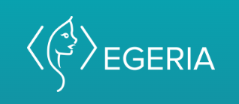
Egeria is an open-source project under the Linux Foundation’s ODPi project. It is certainly one of the most robust open-source platforms for metadata and lineage management across different systems. It is one of the best solutions for organizations seeking complete, scalable solutions.
Key Features of Egeria
- Open-source data governance framework.
- Focuses on metadata and lineage management.
- Backed by the ODPi community, highly scalable
Pros: Open-source, scalable, robust governance features
Cons: Very hard to implement; needs technical know-how
Suitable for: Large Enterprises with dedicated data governance teams
Pricing: Free(Open-Source)
4. Apache Atlas

Atlas is an extensible and highly scalable set of governance services that enable organizations to manage and meet their compliance requirements within Hadoop and allow integration with the whole enterprise data ecosystem. It provides automated lineage tracking and classification, making it an ideal choice for organizations using Hadoop for big data processing.
Key Features of Apache Atlas
- Pre-defined data types for different metadata, including Hadoop and non-Hadoop.
- Easy-to-use interface for tracking the lineage of data as it moves through various processes throughout its lifecycle.
- Fine-grained security for metadata access, enabling controls on access to entity instances.
Pros: Provides strong support for Hadoop, automated metadata collection, and GitHub availability.
Cons: Limited to Hadoop-based environments
Ideal For: Enterprises using Hadoop ecosystems
Pricing: Free(Open-Source)
5. IBM Manta
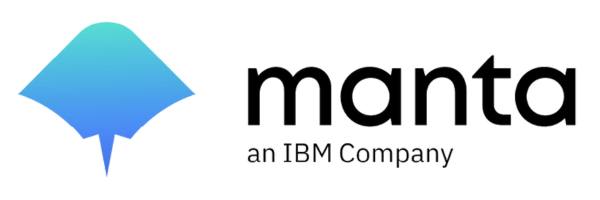
IBM Manta Data Lineage is a data lineage platform that increases data pipeline transparency so businesses can determine data accuracy throughout their models and systems. It provides in-depth lineage tracking for databases, BI tools, and ETL pipelines, with powerful visualization features to map out data flows.
Key Features of IBM Manta
- Automated scanning and mapping of data flows.
- Improved visibility and issue resolution in data pipelines with this industry-first feature.
- Enables tracing of errors to their origin and quick resolution.
- Supports over 50 technologies, including various operating systems, and is compatible with hybrid and multi-cloud environments.
Pros: Detailed lineage analysis, advanced visualization tools, efficient error tracing
Cons: Expensive, may be overkill for smaller businesses
Ideal For: Large organizations with complex data environments
6. Collibra

Collibra’s Data Lineage solution lets you build trust and gain end-to-end visibility into data. It does so by automatically mapping relationships between various systems, applications, and reports to provide a context-rich view across the enterprise. It integrates with data lakes and BI tools, among other things, to allow seamless data governance with one source of truth.
Key Features of Collibra
- Extract lineage across systems automatically.
- View details and transformations with technical lineage.
- Provides better understanding of data and its dependencies by visualizing direct flows and indirect relationships across data assets.
Pros: It offers good enterprise-level support, a wide range of integrations, and an extensive resource library.
Cons: expensive and hard to install
Suitable For: Medium to large enterprises having differing types of data ecosystems
“Collibra is the place where we can find all the answers to the questions the business is asking. Collibra gives Orange Spain a single, centralized view of data across the whole business. It ensures the business accesses the right, high-quality data and it helps us speed up and improve decision-making.”
-Juan José Alonso, Data Governance and Privacy Specialist, Orange, Spain.
7. Octopai
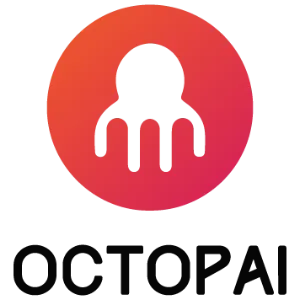
Octopai specializes in automatic metadata discovery and lineage tracking in business intelligence (BI) environments like Tableau, Power BI, and Qlik. It automates the process of tracking data across different BI tools, making it easier to audit and govern.
Key Features of Octopai
- Predicting the impact of a process change
- Root cause analysis or RCA to uncover the source of reporting errors.
- Visualizing the logic of a report, ETL, or database object data flow.
Pros– Cross system, End-to-End and Inner-System Lineage, Automated, BI-focused, easy to use
Cons: Limited to BI environments
Best For: Companies relying heavily on BI tools
Pricing: Annual licenses are tiered based on the number of data source integrations and users. You can request Octopai Pricing.
8. Alation

Alation provides a powerful and intelligent data platform that supports several metadata management applications, using features such as search and discovery, data governance programs, and digital transformation.
Key Features of Alation
- Provides machine learning capabilities.
- AI-powered data catalog.
- Active Directory Integration
- Supports Ad hoc Reporting
Pros: Collaborative, easy to integrate with multiple data sources
Cons: Requires buy-in from multiple teams
Best For: Teams focused on collaboration and data stewardship
Pricing: Custom pricing based on requirements.
9. Atlan

Atlan offers both active and passive metadata management. It allows teams to establish a single-source-of-truth for all their data assets and collaborate across the modern data stack through deep integrations with tools like Slack, BI, and data science tools.
Key Features of Atlan
- Search, catalog, and browse data assets (tables, BI dashboards etc).
- Give data assets a profile, such as auto data quality profiling, wikis, etc.
- Enable collaboration through link sharing, chat plugins, integrations with BI tools, etc.
- Simple three-step no-code setup.
Pricing: It works on a monthly adoption model that scales as you get value from Atlan. Contact their sales team to learn more about our pricing.
Best Data Lineage Tools- Overview
| Tool | Scalability | Integration | Real-time Monitoring | Ease of Use | Customization | Pricing |
| OpenLineage+ Marquez | High | Spark, Airflow, and other major platforms | Yes | Moderate (requires setup) | High | Free(Open-source) |
| Tokern | Moderate | Cloud platforms, APIs | No | Easy | Low | Free(Open-source) |
| Egeria | High | Multiple systems, metadata management | No | Complex | High | Free(Open-source) |
| Apache Atlas | High | Hadoop, Hive, HBase | No | Moderate | Low | Free(Open-source) |
| IBM Manta | High | Databases, ETL tools, BI platforms | Yes | Moderate (learning curve) | High | Expensive (Enterprise) |
| Collibra | High | Data lakes, databases, BI tools | Yes | Complex | High | Expensive (Enterprise) |
| Octopai | Moderate | Tableau, Power BI, Qlik | No | Easy | Low | Moderate(Commercial) |
| Alation | High | Data lakes, databases, BI tools | No | Easy | Moderate | Expensive (Enterprise) |
| Atlan | High | Cloud platforms (AWS, GCP, Azure) | Yes | Easy | Moderate | Moderate(Commercial) |
What are the Factors You Should Consider Before Choosing A Data Lineage Tool?
You should consider if the tool you are choosing meets the following requirements:
- Scalability: Can the tool grow with your organization’s data needs?
- Integration: Does your tool work well with your existing data infrastructure, including databases, ETL tools, and data lakes?
- Real-Time Monitoring: Does the tool offer real-time updates on data flows, or does it rely on periodic batch processing?
- User-Friendliness: Is it intuitive enough for your team to use without extensive training?
- Customization: Answers the question- Can you tailor the tool to meet your specific requirements?
Consider these factors, and then decide which tool among the ones mentioned above suits your business needs.
Conclusion
Data Lineage Tools are vital for modern businesses that need to ensure data quality, regulatory compliance, and governance across increasingly complex data landscapes. From open-source options like OpenLineage to enterprise solutions like Collibra, the right tool can transform how your organization manages its data.
Choose the right tool for your organization with our detailed blog. For migrating your data effortlessly for a better data management and lineage, try Hevo. Hevo is a reliable, cost effective, no-code platform that offers a 14-day free trial to manage all your data needs.
Frequently Asked Questions
1. What is a data lineage tool?
A data lineage tool helps visualize and track the flow of data from its origin to its final destination. It shows how data moves through various processes, systems, and transformations within an organization.
2. What is the best data lineage tool?
The best data lineage tool depends on specific needs, but popular options include Apache Atlas, Collibra, Manta, etc. Each tool offers different features for data governance, integration, and compliance.
3. How do you track data lineage?
Data lineage is tracked using metadata management practices, which involve documenting data sources, transformations, and destinations. This can be done manually or through automated tools that extract and visualize lineage information from data systems and workflows.

